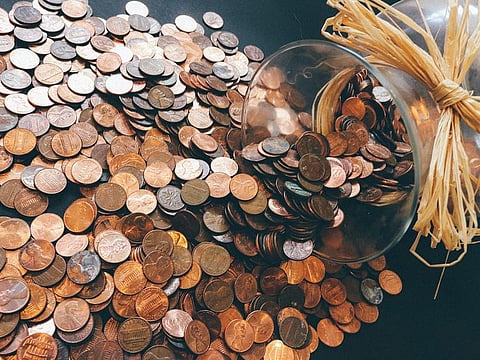Coronavirus – UAE: Cut back on unnecessary expenditure and save up to 30% more!
Avoid impulse buying and be mindful of the waste you generate to save on dirhams

Srishty Jain, an Indian expat who was in the UAE for five years, is an avid advocate of the zero waste lifestyle. In 2015, the 34 year-old former investment banker became mindful of her lifestyle and the waste she was generating and there has been no looking back since.

With the coronavirus pandemic hitting the income of several families, this is the right time to be gradually shifting to a zero waste lifestyle. Contrary to public perception that an eco-friendly lifestyle could be expensive for the family, such an approach is easy on the pocket. “When my family compared our costs from before we made the switch to a zero waste lifestyle, we found that we were saving on at least 20 to 30 per cent costs on average per month,” Jain told Gulf News.
The first step to save on dirhams is to avoid impulse shopping and wasteful buying. Begin by reducing and refusing anything that is not absolutely necessary, she recommended.
Cost comparison
According to Souqalmal.com, a Dubai-based household with two adult members who do not practise the zero waste lifestyle spend an average of Dh700 on groceries per week. This includes fresh supplies (fruit, vegetables, dairy, bakery, water, etc.), cupboard ingredients (flour, rice, oil, spices, condiments, etc.) and household supplies (indoor cleaning and laundry supplies, basic beauty/hygiene products, etc.) On the other hand, a family of two practising the zero waste lifestyle spends an average of Dh100 to Dh150 per week on groceries, according to environmentalist Mariska Nell, who champions this way of living. This mostly includes the purchase of fresh fruits and vegetables only. During a week when the family buys staples like rice and oil, the grocery bill increases to a range between Dh170 or Dh210.
Public transport saves on costs
“I was never a big shopper even before but I became more mindful of my shopping list. Also, I started using public transport, which helped me save a lot,” Jain told Gulf News.
Other steps that helped her reduce waste were to purchase groceries on a daily basis, rather than once in 15 days or on a monthly basis. Jain also learnt to bake bread and healthier desserts for her two-member family. She saved on the expenditure on cleaning agents by using natural ingredients like baking soda and lemon.
Before she made the switch to a zero waste lifestyle, Jain used plastic bags for her grocery purchases, drank from plastic bottles and used store-bought soaps and creams. Now she uses glass bottles, glass tumblers, reusable straws, cloth napkins, reusable bags, has learnt composting and how to make soaps and yoghurt from live culture, etc.
Upfront investment costs
“The upfront investment is not much, but the switch to this lifestyle needs a lot more time for preparation and decision-making,” she recalled.
The upfront investment is not much, but the switch to this lifestyle needs a lot more time for preparation and decision-makingSrishty Jain
It was a struggle to remove the plastic from her grocery shopping experience. “Buying groceries from a new shop was tough as it would take a lot of time to explain to them. Sometimes I had to go to the next level of store managers to explain what I was practising,” Jain recalled.
After implementing all these eco-friendly measures, her family produces only a jar of waste per day and a medium-sized dustbin for the whole week. She aspires for a time when her family can produce garbage that would fill one jar per week. That’s a work in progress, Jain added.
Paying it forward
“It was the desire to do something for Nature that inspired my family and me. It was very tough initially for the family to make a shift and getting used to it took a lot of time. Don’t make sudden shifts. Try with one or two things that are the easiest. And then graduate. It’s worthwhile,” Jain suggested.
Such small steps will go a long way in helping control food waste and thereby reduce cost. Annual food waste in the UAE is estimated at 197 kg per person, compared with 95 to 115 kg in Europe and North America, according to recent research.
Doesn’t happen overnight
Jain, who relocated to the Indian city in Bangalore in October 2019 and is now an entrepreneur, said it can be tough to immediately shift to a zero waste lifestyle in current times when stay-at-home measures are being enforced. “A good step instead would be to become mindful of your lifestyle and waste generated. Try making simple changes like, for instance, carrying your own bottle and shopping bags,” she recommended.
Jain has been inspired by US environmental activist Lauren Singer, who had once famously said that she could fit three years’ worth of waste into a 16 ounce (473 ml) mason jar. “Whenever I digress or get distracted, I go through her blog multiple times. I follow her extensively on social media,” she observed.
How to shift to a zero waste lifestyle
Sign up for the Daily Briefing
Get the latest news and updates straight to your inbox







